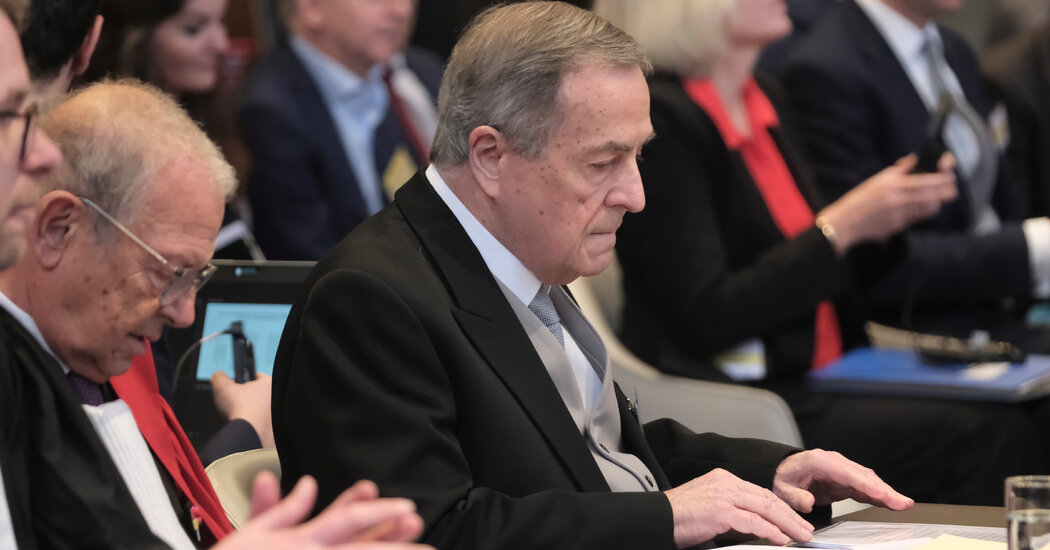For Nicaragua's representative to the International Court of Justice, this week's hearing before the World Court was a case of déjà vu.
But experts in the Central American nation saw it as a cynical move by a totalitarian government to boost its profile and distract attention from its own worsening repression.
Weeks after being sharply criticized by a United Nations investigative team for human rights abuses, Nicaragua, a longtime supporter of the Palestinian cause, on Monday took Germany to the international tribunal in The Hague for supplying weapons to Israel.
After accusing Germany of ignoring what it calls clear signs of genocide, Nicaragua asked the court to order Germany to stop selling weapons to Israel.
Carlos J. Argüello Gómez, Nicaragua's agent before the 15-judge United Nations court known as the ICJ, said the case is a throwback to when Nicaragua sued the United States before the same court. At the time, the United States supported a group known as the Contras, a counterrevolutionary force seeking to overthrow Nicaragua's left-wing Sandinista government.
“The present case is different, but has a striking similarity,” Argüello told the court in a speech Monday.
Tuesday marks the official 40th anniversary of that case. It is also the time when Germany is expected to go to court in response to Nicaragua's allegations.
Nicaragua's President Daniel Ortega and his wife, Vice President Rosario Murillo, likely hope to bolster their international image by spearheading a case against Israel and its allies, said Mateo Jarquín, a Nicaraguan historian at Chapman University in California.
“Nicaragua's ruling party, the Sandinista National Liberation Front, has long experience, dating back to its time in power in the 1980s, of using global bodies like the ICJ to carve out space for itself internationally – to build legitimacy and resist diplomatic isolation,” the minister said. – Jarquín said. “It is unclear whether they will be as successful here as they have been in the past.”
In the 1984 dispute, the United States was ordered to cease and desist all support for any paramilitary force in Nicaragua. The United States questioned the court's jurisdiction, and Nicaragua withdrew the case a few years later, after the Sandinistas lost power through elections.
Mr. Jarquín noted the irony: The UN has accused Mr. Ortega and his wife of crimes against humanity in the six years since hundreds of thousands of people took to the streets across the country to demand their ouster.
The pair are accused of unleashing heavy police firepower against civilians during those protests, resulting in the deaths of hundreds of people.
In the years that followed, they manipulated the judiciary and legislature to consolidate their power, investigators concluded. Hundreds of people were jailed and thousands more forced into exile.
“The world is aware that the current government of Nicaragua does not have the moral and political authority to speak or defend human rights, much less on issues of genocide,” said Manuel Orozco, who studies Nicaragua for the Inter-American Dialogue, an research institute in Washington.
“At most, it is a distraction from their business,” he said, citing a recent report by members of the British parliament who suggested taking Nicaragua to the International Court of Justice for human rights abuses.





